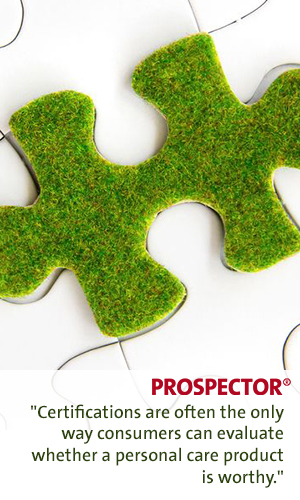 The UL Study: Under the Lens: Claiming Green – The influence of green product claims on purchase intent and brand perception provided an in-depth look into how consumers process and react to green claims. Consumer responses in each of the four categories surveyed were insightful, revealing and, in some instances, intriguing.
The UL Study: Under the Lens: Claiming Green – The influence of green product claims on purchase intent and brand perception provided an in-depth look into how consumers process and react to green claims. Consumer responses in each of the four categories surveyed were insightful, revealing and, in some instances, intriguing.
Key Findings
- 93% of consumers chose a certification as one of their top three factors for choosing a product.
- 54% of respondents were concerned about chemicals in products that come into contact with their skin.
- 56% say certification made products more reputable.
- Consumers don’t like technical language.
Advice Across Categories
In addition to the FTC Green Guidelines, such detailed feedback can help manufacturers create green claims that can be substantiated and that resonate well with the consumer. Based on the findings of this study, the authors offer general advice that is applicable across categories:
- “Clear, believable claims on product packaging are a chance to reassure your customer about the content of your product and about its health and safety.”
- “Consumers need context, they need specifics and they need clear language to understand the environmental benefits being promised on the label.”
A Space in Transition
However, in the personal care category, consumers’ responses were sometimes ambiguous and confusing – likely the reason why the authors arrived at the conclusion that “personal care appears to be a space in transition.” For example, although the term “all-natural” was among consumers’ top eight choices, they didn’t like “natural,” which landed on the lists for confusing/misleading claims and negative brand perceptions. Some additional findings in this category:
- Consumers didn’t know what HDPE meant.
- They didn’t like claims about complicated sounding chemicals – unless there was a certifying mark attached.
- They thought the legitimate (valid, although not third-party certified) claim “contains no parabens, phthalates, petrochemicals or synthetic fragrances” was confusing and contributed to negative brand perception.
Meeting Communication Challenges
Given the overall findings of this study, what are the opportunities to develop personal care products that respect the environment and are commercially viable, with claims that appeal to the consumer and are legally valid? If, as the study found, “consumers don’t like technical language,” how can the personal care manufacturer communicate the green benefits of their products in a science-based industry?
The authors of the study provided insight into how this challenge might be met. The answer: certifications. The following conclusions are particularly relevant to the personal care industry and can help manufacturers more effectively communicate their eco-friendly efforts:
- “Certifications can serve as a translator for consumers when your claim is scientific or technical.”
- “If your product’s green claim relates to VOCs, certifications are a must.”
- “Consumers don’t know specific industry terminology. Certifications are often the only way they can evaluate whether a product is worthy.”
Want to learn more?
Register today for UL Environment’s webinar, “How green product claims affect purchase intent and brand perception,” featuring Lee Ann Head, VP Research and Insight, Shelton Group; Mark Rossolo, Global Director of Public Affairs, Underwriters Laboratories; and John Davies, Vice President & Senior Analyst, GreenBiz Group.
And make sure to download UL Environment’s exclusive report, “Claiming Green,” for more insights.
The views, opinions and technical analyses presented here are those of the author or advertiser, and are not necessarily those of ULProspector.com or UL Solutions. The appearance of this content in the UL Prospector Knowledge Center does not constitute an endorsement by UL Solutions or its affiliates.
All content is subject to copyright and may not be reproduced without prior authorization from UL Solutions or the content author.
The content has been made available for informational and educational purposes only. While the editors of this site may verify the accuracy of its content from time to time, we assume no responsibility for errors made by the author, editorial staff or any other contributor.
UL Solutions does not make any representations or warranties with respect to the accuracy, applicability, fitness or completeness of the content. UL Solutions does not warrant the performance, effectiveness or applicability of sites listed or linked to in any content.



Leave a Reply or Comment